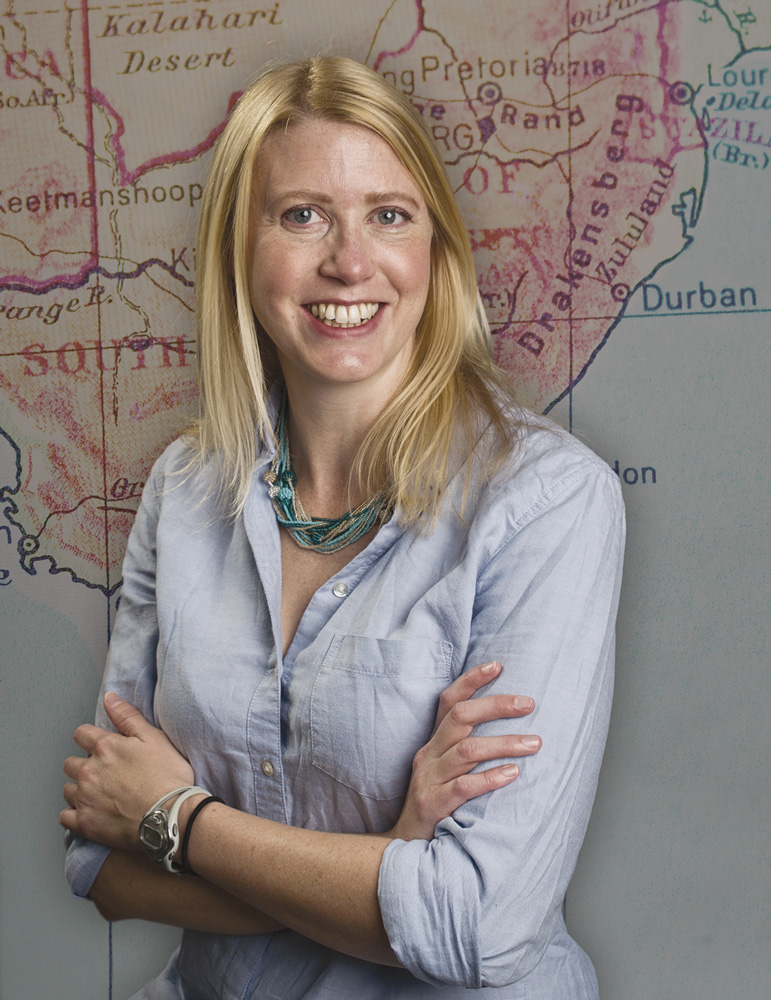 UAB microbiology graduate student Jennifer Rowland knows a lot about Mycobacterium tuberculosis and the disease it causes. In fact, she is the first to identify an enzyme that enables the bacteria to resist copper, released by the host immune system in an effort to kill the invader, and is determining if the same enzyme is required for virulence. But to truly understand the disease, Rowland journeyed to the heart of Africa’s TB epidemic.
UAB microbiology graduate student Jennifer Rowland knows a lot about Mycobacterium tuberculosis and the disease it causes. In fact, she is the first to identify an enzyme that enables the bacteria to resist copper, released by the host immune system in an effort to kill the invader, and is determining if the same enzyme is required for virulence. But to truly understand the disease, Rowland journeyed to the heart of Africa’s TB epidemic.Last summer, Rowland, along with UAB M.D./Ph.D. student Nicholas Eustace, completed a prestigious UAB research internship at the new KwaZulu-Natal Research Institute for Tuberculosis and HIV (K-RITH), in Durban, South Africa. The groundbreaking center is a collaboration between the Howard Hughes Medical Institute and the University of KwaZulu-Natal, with support from the South African government, and its investigators include Adrie Steyn, Ph.D., a UAB microbiology faculty member splitting his time between Africa and Alabama. Here, Rowland shares some insights from her experience:
What did you research at K-RITH?
I worked with discarded lung tissue from patients to determine if copper resistance proteins of M. tuberculosis are present during infections. We also looked for copper transporters that cells use to increase copper concentration at the infection site. Understanding the role of copper in amplifying the host immune response, as well as the mechanisms that M. tuberculosis uses to fight copper toxicity, may lead to improvements in treatment of TB and other diseases.
Did you gain any unique insights from studying in Africa?
K-RITH is uniquely situated in an area of high TB and HIV prevalence, allowing better access to clinical samples. This means we can study the diseases where they are having the greatest effects. I’ve been able to meet with patients and see how TB and HIV get treated in South Africa firsthand.
It is important to get a sense of the numbers and types of people affected by TB and HIV, something that is very hard to do in the United States. Even at UAB, where we have a long history of studying these diseases, it can be rare to see a TB patient. Coming to Durban has given me a much better sense of the costs to individuals with these diseases and what innovations might help them.
Did you learn things that could potentially help Alabama patients?
Any advances we make in diagnosis, treatment, and prevention of HIV and TB will make a big difference globally. Many people don’t know that TB still exists, and educating them that it is still a burden and that drug resistance is rising will help make people aware of how they can prevent the disease. The best we can do, for now, is to increase access to and ease of testing, and shorten time to results as much as possible. Additionally, working to remove stigma associated with HIV will go a long way toward increasing people’s willingness to get tested.
How will this internship shape your research career?
My work at K-RITH has helped me think about integrating basic biological research with clinical research. It has taught me to talk with a greater variety of scientists and clinicians to get the most out of my work.
How did you adjust to living in South Africa?
Living in Durban is similar to living in Birmingham in many ways. Durban has a lot of interesting, fun things to do and good restaurants. I met a lot of friendly people who also helped to smooth the transition.
This Q&A originally appeared in the Winter 2014 edition of UAB Medicine Magazine.